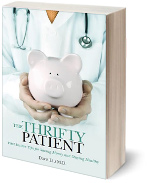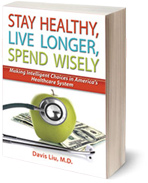How a vegan lifestyle plant based diet can solve health care costs and environmental issues
Can Individuals and Families Fix Health Care and the Planet?
It is always fascinating to watch the political ads at election time, getting to hear what the different candidates plan to do for us, the American people, and what problems they plan to solve. The high cost of healthcare is always a huge topic for discussion which has now shifted focus from “let’s fix healthcare” to “let’s get rid of Obamacare.” Everyone has a solution for the water shortage, most of which revolves around figuring out how to get your neighbor to use less. Then there is the ever present issue of energy – energy independence, fracking and pipelines. And somewhere lost in all these discussions, but still lurking in the background, is global warming.
The interesting thing about these somewhat diverse major problems is that they are very likely connected both as to cause and to the solution. And while Sacramento and Washington could solve these problems, the bad news is that the powerful (i.e. rich) interests that control how our legislators act will likely prevent this.
The good news, however, is that we (yes, the American people) have much more power to influence and overcome these issues than we might have ever imagined. And, it can all be done at the dinner table, in the security of our own homes, with only a little expenditure of time and effort. Let’s start with healthcare.
The Truth About High Health Care Costs – Obesity
Everyone has their own solution for the high cost of healthcare but the truth of the matter is that we are a sick bunch of people and that is what makes it expensive. There is an obesity epidemic in this country which has directly led to an epidemic of chronic diseases, especially heart disease and diabetes. We also have some of the highest rates of cancer in the world. And it is not because we don’t spend enough money on healthcare, we spend more than any country in the world – twice what the Swiss spend, 150% more than the Japanese and ten times the Cubans. Yet, the average person in all these countries lives longer than the average American.
So, why the disparity? T. Colin Campbell (The China Study) discovered an amazing correlation between the incidence of heart disease, diabetes and the major cancers (breast, colon and prostate) and diet. There is an almost 1:1 relationship between the amount of fat and animal protein (meat, eggs, dairy and fish) ingested and these diseases. The Japanese, for example, consume a diet consisting primarily of starch (rice) and vegetables and eat very little animal protein (about 10% as much as we do) and live longer than anyone on earth. Their incidence of heart disease and breast cancer is about 1/3 of ours, except if they move to America and adopt our way of eating, when it becomes equal to ours.
What We Eat is Related to Environmental Damage – Energy, Water, Land
What does this have to do with water and energy? There is a huge cost related to the production of animal protein. It is estimated that 1/3 of arable land and ½ the water in this country go to the production of livestock, particularly chicken and cattle. It takes one football field to produce animal protein to feed 1 person for one year. That same football field, used to produce foods for a whole foods plant based diet (fruit, nuts, vegetables, grains and beans) could feed 7 people for 1 year. It has been estimated that if the whole world ate like most Americans, we would need a second earth to produce this food. This is not sustainable.
And energy? Raising livestock is a very energy intense proposition. Dr. Peter Bowler, during a seminar in global sustainability at UCI way back in 1999, pointed out that the energy return ratio (food energy produced per fossil energy expended) for the most efficiently factory farmed meat was 34.5% whereas for the least energy efficiently produced plant protein it was 328%, a nearly ten-fold difference. Forty pounds of soybeans can be produced by the same amount of fossil fuel required to produce 1 pound of meat. The grain required to produce a quarter pound hamburger would be enough grain to feed 3 people 3 meals per day. (Diet for a New America)
The same can be said of water. Over half of the water used in this country goes to the production of meat, much to irrigate cattle feedlots. You can witness this yourself if you drive past the Harris Ranch feedlots on I-5 in central California. It takes about 2500 gallons of water to produce a pound of meat but only 25 to produce one pound of wheat. Here in California, 83% of our water goes to agriculture, predominantly to grow livestock. Half of the water is used to produce the alfalfa, hay and pasture land to feed cattle. And the really bizarre part of all this is that we the taxpayers (yes, the American people) are subsidizing this use of water. We underwrite all the federal water projects and the end users end up paying pennies on the dollars for this water. It has been estimated if industry had to pay what it cost for the water it uses, a hamburger would cost $34 and a beefsteak $89. (Seminar in Global Sustainability, UCI)
Eighty Percent of Water Use Goes to Agriculture
Human beings only use about 1.5% of world’s fresh water supply (to drink and bathe). Agriculture uses over 80% (Univ. of Mich.study). And because there is no market for water, there is waste, overuse and misuse (WSJ). If industry had to pay for their share of the water, we would think twice about raising food for fuel (it takes 9000 liters of water to produce one liter of biodiesel) and there would be some second thoughts about fracking.
But, energy and water are not the only natural resources needed to feed our demand for animal protein. Land is also needed. As the rest of the world emulates the western diet, more and more of the world’s forests are being destroyed in order to create farmland to grow the grains required to feed the animals. And as the forests disappear, so does the earth’s ability to trap greenhouse gases, which are then released into the atmosphere and contribute to the problem of global warning. And to make matters even worse, livestock contribute another 20% to the total harmful emissions in the form of methane released from the manure. It might surprise you to learn that cows produce 130 x’s more waste than humans.
Forget the Prius, Eat Less Beef
Mark Bittman, writer for the New York Times, in “Rethinking the Meat-guzzler”, pointed out that it takes the same amount of energy to produce 2# of beef as it would to keep a 100 watt light bulb burning for 20 straight days. And producing that same amount of beef would emit as much CO2 into the atmosphere as driving a car 155 miles. Thinking about getting a Prius to be more energy conscious? Cutting down on animal protein consumption by 20% has the same impact on the environment as trading in the gas powered sedan for a hybrid.
There are organizations whose mission it is to reduce the consumption of animal protein in order to decrease the cruel and inhumane treatment of animals. How about we consider decreasing our consumption of animal protein (meat, dairy, eggs and fish) in order to improve our health and decrease the ruination of our planet? Isn’t that something we would like to do, if not for us, perhaps for our children and grandchildren? And this is something we can all do together, with our families, within the comfort of our own homes. We don’t need a new congress or President.
A Healthier Way – Plant Based Diet
If we ate mostly a plant based whole foods diet, we would become healthier and would need to spend less on healthcare – fewer pills to treat heart disease, diabetes, elevated cholesterol; fewer heart attacks and strokes; less surgery for breast, colon and prostate cancer. We would need less land to grow all the food we need and could convert 5 billion acres of farmland back to forest which would help to slow, stop or reverse the global warming trend. We would use less of our natural resources, especially water and energy.
It is almost not conceivable that the majority of grain produced in the world today is fed to our livestock while nearly a billion people suffer from hunger and/or malnutrition. Should we not be feeding our fellow human beings instead of our cows, pigs and chickens? Instead of an Ebola Czar, we should have a common sense Czar, overseeing efforts to end the hunger, poverty and destruction of the planet that are occurring because of how we eat?
This is not new information. The NYTimes reported in 1907 that immigrants who ate a more plant based diet lived longer than those who were predominantly meat eaters. And Diet For A Small Planet was written in 1960’s. But what is new now is the urgency that is required for a change. Because of the health related effects of poor eating, the younger generation today will likely not live as long as their parents. The giant Ogallalla Aquifer, stretching under the Great Plains from South Dakota to Texas, upon which much of Midwest relies for drinking water and irrigation could be depleted by as soon as 2028. Richard Oppenlander (from his blog, Freshwater Depletion: Realities of Choice) reports that the environmental damages from global warming could become irreversible as soon as 2017. Time is of the essence!
My personal journey started in 2009
My wife and I have eliminated 95% of animal protein from our diets. We started on this journey 5 years ago and very much enjoy it. The food is quite varied and tasty and we both feel better and have better health profiles. And, it costs us about 35% less to eat fruits, veggies, beans, legumes and grains than when we were building our diet around animal protein. Yes, it may take a little more time to prepare your food as you learn this new way of eating, but this is something that the entire family can be involved with and that could be very valuable bonding time spent together.
There are many great references and lots of resources. Get a copy of The Complete Idiot’s Guide to Plant-Based Nutrition (Idiot’s Guides) and sign up for the email newsletters from Forks Over Knives and the Physicians Committee on Responsible Medicine. Both feature weekly recipes to try, research on nutrition and motivational stories about ordinary people who have made the transition.
Save Our World and Ourselves
Not only are we what we eat but the good of the planet depends upon what we eat. And, we can do what our leaders have failed to do – help solve the problems of water use, energy consumption, the high cost of healthcare, deforestation, global warming, starvation and poverty. And all we have to do is eat fewer animals and more plants. Together we can save our world and ourselves!
Andy Klonecke, MD, Subchief of Nuclear Medicine, North Valley.
Chair of the Chiefs of Nuclear Medicine, NCal; Elected Representative Sacramento Medical Center (1999 – 2014).


 Get important exclusive advice and tips on how to save money while staying healthy.
Get important exclusive advice and tips on how to save money while staying healthy. Learn how to make intelligent choices in America's Healthcare System.
Learn how to make intelligent choices in America's Healthcare System.